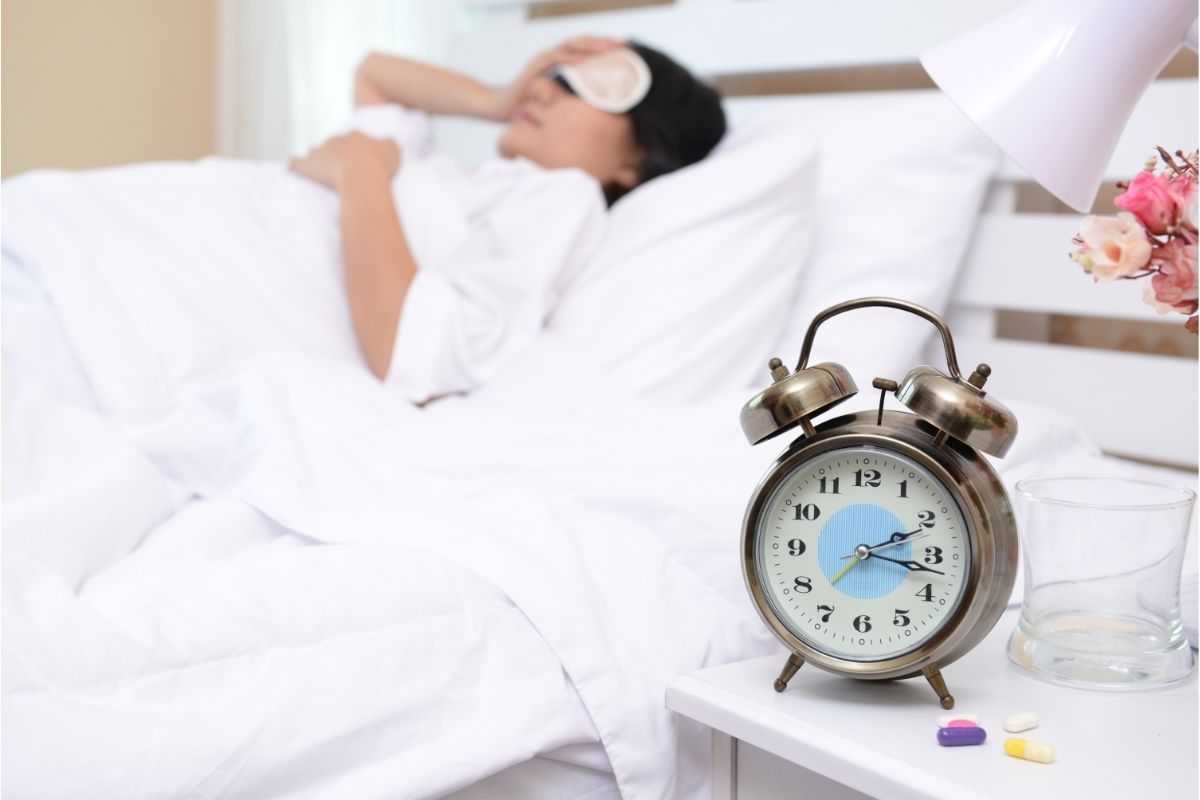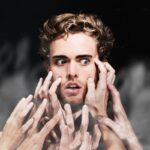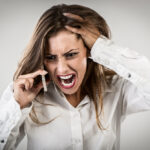Why Does My Anxiety Get Worse At Night?

Anxiety is like a sneaky monster that creeps up on millions of Americans every year.
Imagine a world where 40 million adults are battling this invisible foe – that’s what the National Institute of Mental Health (NIMH) tells us is happening right now.
It’s as if an entire country is walking around with a heavy backpack full of worries!
Anxiety isn’t just feeling a bit nervous before a big test.
It’s like having a party in your head, but all the guests are your worst fears.
You might feel scared, restless, or tense.
Your muscles might be as tight as a drum.
Focusing on anything feels like trying to catch a greased pig.
You’re irritable, like a bear woken up from hibernation too early.
And sleep? Forget about it!
This article is a must-read for anyone who’s ever felt their heart race at night for no reason, or found themselves staring at the ceiling instead of counting sheep.
You’ll discover why anxiety likes to crash your pajama party and how to kick it out.
So, grab a cozy blanket and let’s dive into the world of nighttime anxiety together!
Anxiety: Your Body’s Superhero Gone Rogue
Hold onto your hats, folks, because I’m about to blow your mind.
Anxiety isn’t always the bad guy.
In fact, it used to be our superhero!
Back in the caveman days, anxiety was like our personal bodyguard.
It kept us on our toes, ready to run from saber-toothed tigers or dodge rival clans.
Without it, we might have ended up as prehistoric lunch!
But here’s the kicker: our brains haven’t gotten the memo that we’re not living in caves anymore.
They’re still on high alert, even when the biggest danger we face is a paper cut.
These days, the modern world has turned up our stress levels to eleven.
It’s like we’re all walking around with our own personal anxiety DJs, and they’ve cranked the volume way too high.
By the end of the day, many of us feel like we’ve run a mental marathon.
Our anxiety levels are through the roof, and we’re not even sure why.
It’s time to turn down the volume and reclaim our peace of mind!
When the Sun Goes Down, Why Does Anxiety Turn Up?
Ever notice how anxiety seems to love a good midnight snack?
It’s like it waits until you’re all cozy in bed before deciding to throw a party in your head.
There’s no one-size-fits-all reason for this nighttime nuisance.
It could be one thing or a whole cocktail of causes.
But don’t worry, I’ve got the inside scoop on why your brain might be pulling an all-nighter.
Your Mind’s Midnight Marathon
Are you living life in the fast lane?
High-octane activities might be giving your stress levels a turbo boost.
When your day is packed with more action than a summer blockbuster, your mind might struggle to switch off.
It’s like trying to stop a runaway train – those thoughts just keep on chugging!
We’re living in an age where we’re trying to squeeze 48 hours of living into 24.
It’s a recipe for burnout, and anxiety is the chef’s special.
The Midnight Munchies Effect
Stress can turn us into dietary daredevils.
Some of us eat like there’s no tomorrow, while others forget food exists.
Either way, it’s a one-way ticket to Anxiety Town.
Take caffeine, for example.
It’s like rocket fuel for your brain, but it can leave your sleep schedule in shambles.
Many folks rely on it to power through their day, creating a vicious cycle that’s harder to break than a bad habit.
And let’s not forget about comfort eating.
When we stray from our diets, we might feel like we’re failing at life.
Suddenly, we’re anxious about our health spinning out of control, even if it’s just in our heads.
When Substances Throw a Wrench in the Works
Some folks turn to other substances to quiet their anxious minds.
But this can be like trying to put out a fire with gasoline.
Alcohol and tobacco are common go-to’s for masking anxiety.
But when these substances wear off, they can leave anxiety symptoms worse than before.
It’s like borrowing happiness from tomorrow to feel better today.
Life’s Curveballs and Their Midnight Echo
Life isn’t always a walk in the park.
Sometimes it feels more like a trek through a minefield.
Stressful events like divorce, losing a loved one, relationship drama, moving house, or dealing with abuse can all trigger nighttime anxiety.
These worries can linger in your mind like unwanted house guests.
Even everyday stressors can keep your heart racing at night.
Worrying about bills or how to afford the holidays can make relaxing feel like an Olympic sport.
Taming the Nighttime Anxiety Beast
Say Goodbye to Afternoon Coffee
Did you know caffeine hangs around in your body for 6-8 hours?
That means your 2 PM coffee break could still be partying in your system at 10 PM.
Stick to morning joe and switch to decaf after lunch.
Your body will thank you when it’s time to hit the hay.
Dump Your Thoughts on Paper
Is your mind like a hamster on a wheel?
Try a brain dump!
Set a timer for five minutes and scribble down everything that’s stressing you out.
It’s like taking out the mental trash – you’ll feel lighter and ready to relax.
Zen Your Way to Dreamland
There are tons of ways to calm your mind before bed.
Try yoga, meditation, a relaxing Epsom salt bath, or some soothing tunes.
And here’s a pro tip: ditch the screens before bed.
Not only does blue light mess with your sleep hormones, but it also exposes you to anxiety-inducing news, online drama, and social media posts that can set your anxiety on fire.
The Last Word on Nighttime Anxiety
Anxiety might be common, but that doesn’t mean you have to put up with it.
The key is to figure out what sets off your worry alarm.
Once you know your triggers, you can start to defuse them.
Remember, you’re not alone in this battle.
With the right tools and support, you can turn those anxious nights into peaceful dreams.
Sweet dreams, anxiety fighters!

Author: Michelle Landeros, LMFT
Michelle Landeros is a Licensed Marriage Family Therapist (LMFT). She is passionate about helping individuals, couples and families thrive.









